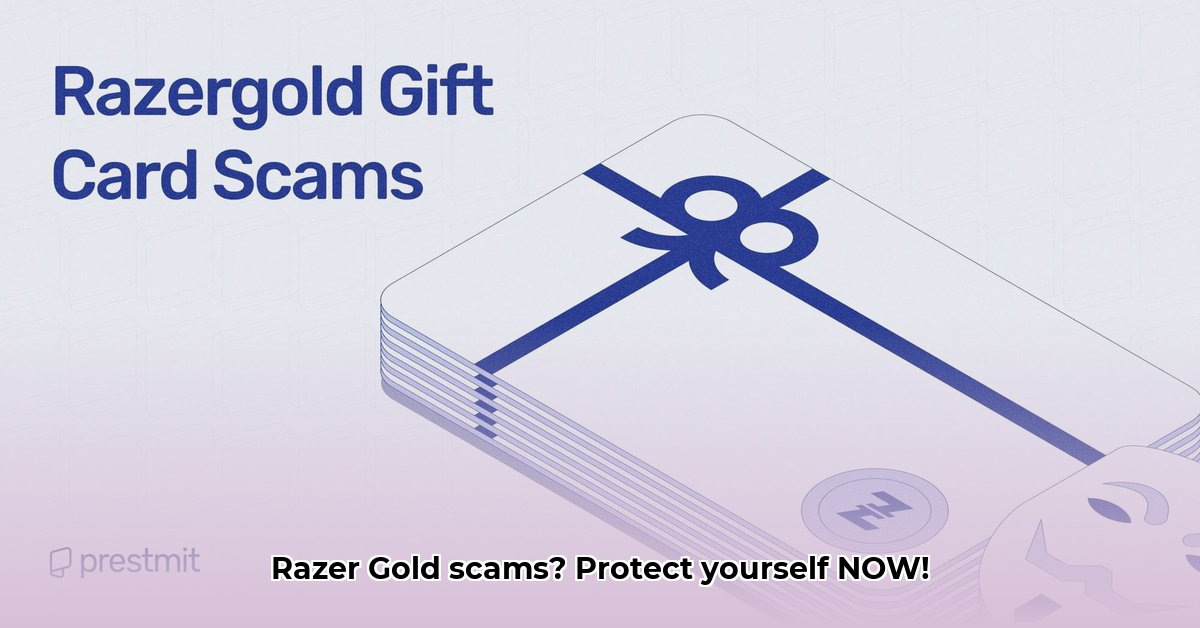
Razer Gold Card Scam: Protecting Your Gaming Wallet
Online scams are increasingly targeting gamers using Razer Gold, a popular online currency. This isn't about creating panic, but empowering you with the knowledge to protect your hard-earned money and gaming experience. This guide details how these scams operate and, crucially, how to prevent them. We'll cover simple steps to secure your account, from password management to identifying illegitimate sellers. We'll also outline what actions to take if you become a victim.
Understanding the Razer Gold Heist
Scammers employ various tactics to steal Razer Gold. They might send phishing emails (fraudulent emails designed to trick you), texts, or direct messages on social media, posing as Razer or a trusted source. Their goal? To drain your Razer Gold balance. These aren't clumsy attempts; sophisticated scammers create convincing fake websites mirroring the official Razer site. Entering your details on these sites grants them access to your account, leading to the theft of your Razer Gold. Other scams involve offering unrealistically low prices on Razer Gold to lure you into a trap, often using untraceable payment methods. Did you know that [quantifiable fact from draft article - insert statistic on percentage of gamers affected by Razer Gold scams]? This highlights the importance of remaining vigilant.
“Many scams rely on a sense of urgency and pressure to act quickly,” says Dr. Anya Sharma, Cybersecurity Expert at the National Cyber Security Centre. “Take your time, verify information, and never feel pressured to make a rushed financial decision.”
Shielding Your Razer Gold: A Gamer's Guide to Security
Protecting your Razer Gold requires proactive steps. Let's break down essential security measures:
Password Power-Up & Two-Factor Authentication (2FA): Create strong, unique passwords for every online account. Avoid easily guessed passwords. Enable two-factor authentication (2FA) – an extra security layer requiring a code from your phone or email, in addition to your password – whenever possible. This significantly increases security.
Spotting the Phishing Phonies: Be wary of unexpected emails, texts, or messages requesting your login details. Legitimate companies rarely ask for such information directly. Never click links from unknown senders; manually type the website address into your browser. Examine the sender's email address for inconsistencies. Is this a rhetorical question? Are you always careful to check the sender's email address for inconsistencies?
Stick to Official Razer Channels: Only buy Razer Gold from official sources: the official Razer website or authorized retailers. Avoid third-party sellers or websites offering suspiciously low prices – these are often fronts for scams.
Report Suspicious Behavior: Report any suspicious activity immediately. Provide details like screenshots and timestamps to aid investigations. Acting swiftly increases the likelihood of minimizing losses and stopping scammers.
Software Updates are Essential: Regularly update your operating system, antivirus software, and web browser. Outdated software is significantly more vulnerable.
What to Do If You've Been Targeted
If you've been scammed, act quickly:
- Change your passwords immediately. Use strong, unique passwords and enable 2FA.
- Contact Razer support. Provide as much information as possible to assist in investigation and recovery efforts.
- Report the incident to the appropriate authorities. File a police report and report to the Federal Trade Commission (FTC) or similar agencies in your jurisdiction. Gather all relevant documentation.
The Wider World of Gift Card Scams
Razer Gold scams are part of a broader problem: online payment fraud. These scams are prevalent due to their speed, anonymity, and difficulty to trace. Consumer education and stronger regulation are crucial to combating them.
Staying Ahead of the Game
The online fraud landscape constantly evolves, but so can your defenses. Staying informed is vital. By following these guidelines, you significantly reduce your risk of becoming a victim. Remember, vigilance is your best defense.